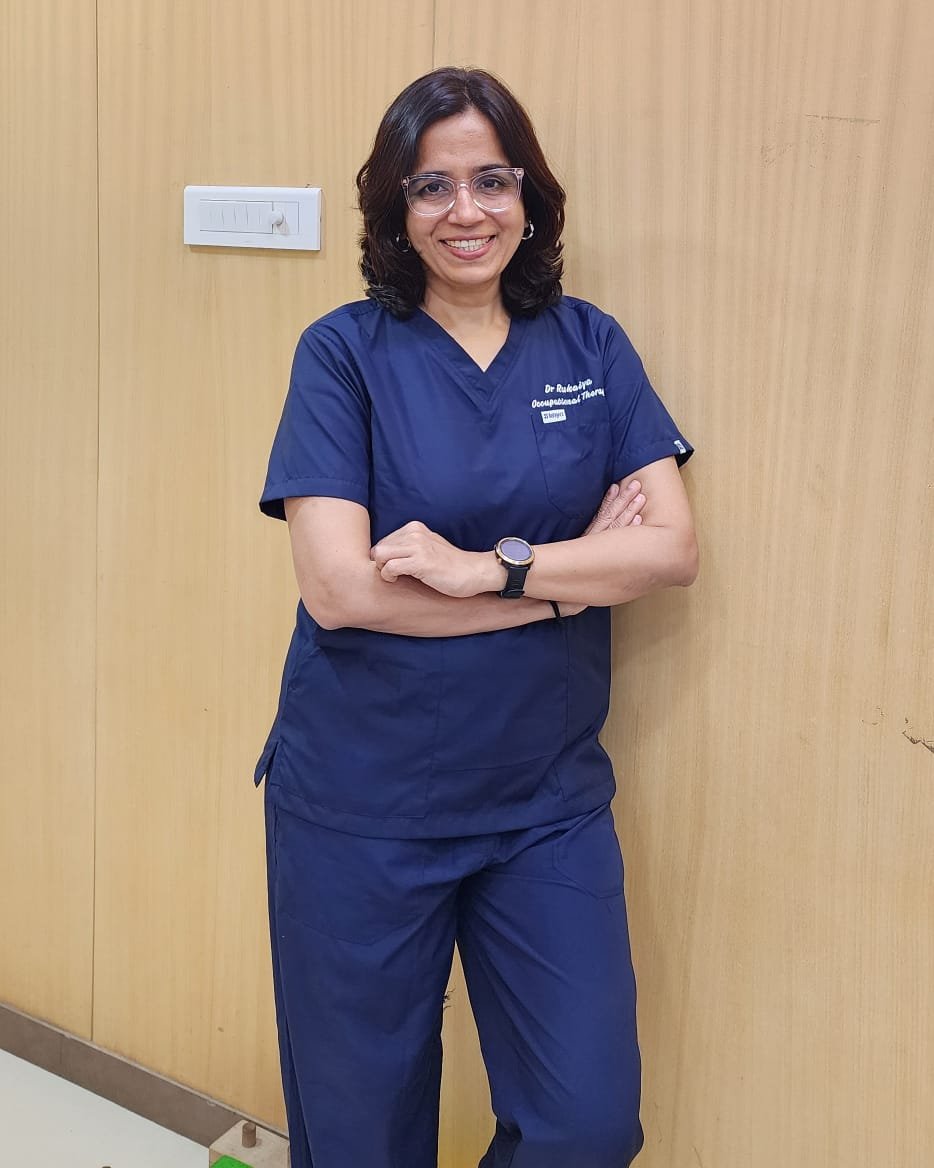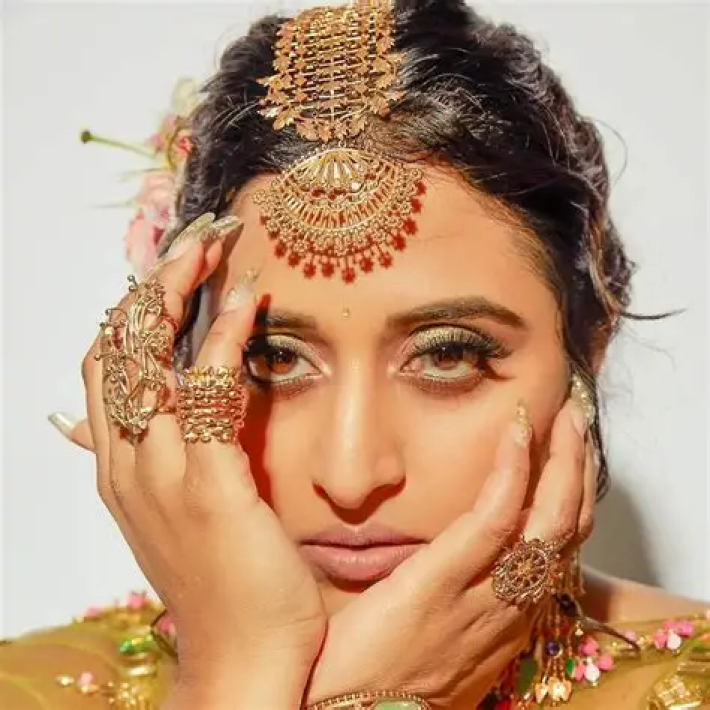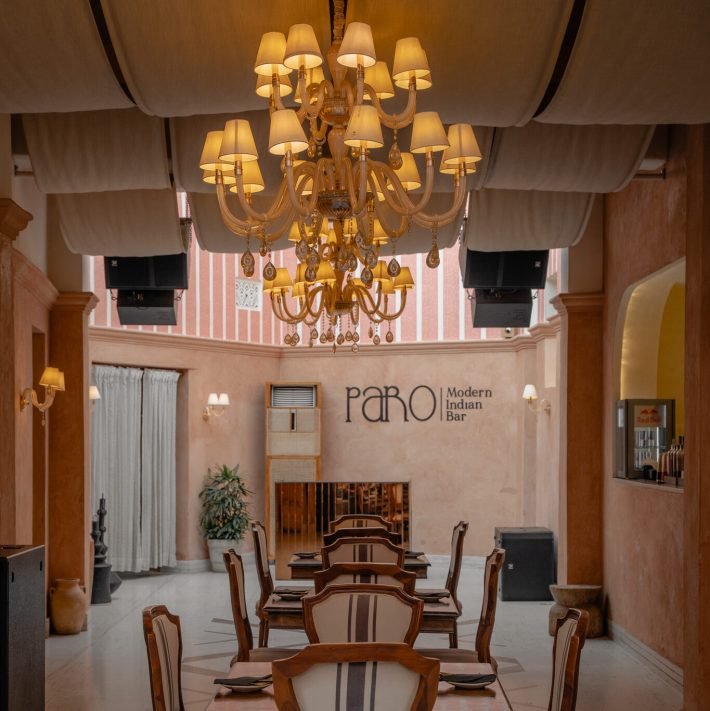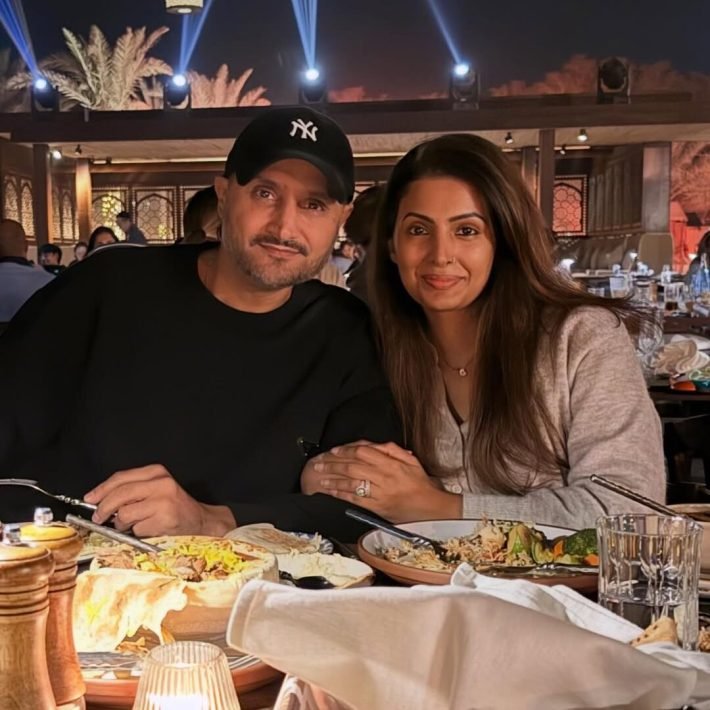With a career spanning over three decades, the very warm and affable Rukaiya Harianawala is more than just an accomplished Occupational Therapist, she is a steady guiding light in the lives of countless children and families. Armed with a Bachelor’s degree from Sion Medical College and a Master’s from Nair Hospital, Rukaiya’s journey has taken her through some of Mumbai’s most respected medical institutions, including Saifee Hospital and Prince Aly Khan Hospital.
Today, she continues her deeply meaningful work at The Aditya Birla Integrated School, where she has spent the last 11 years, all while managing thriving private practices in Mahalakshmi, Nariman Point, and Colaba. Her work isn’t just clinical… it’s personal. She has dedicated her life to helping children with special needs such as Autism, ADHD, ADD, Down syndrome, and Sensory Processing Disorders, guiding them patiently and lovingly toward unlocking their true potential.
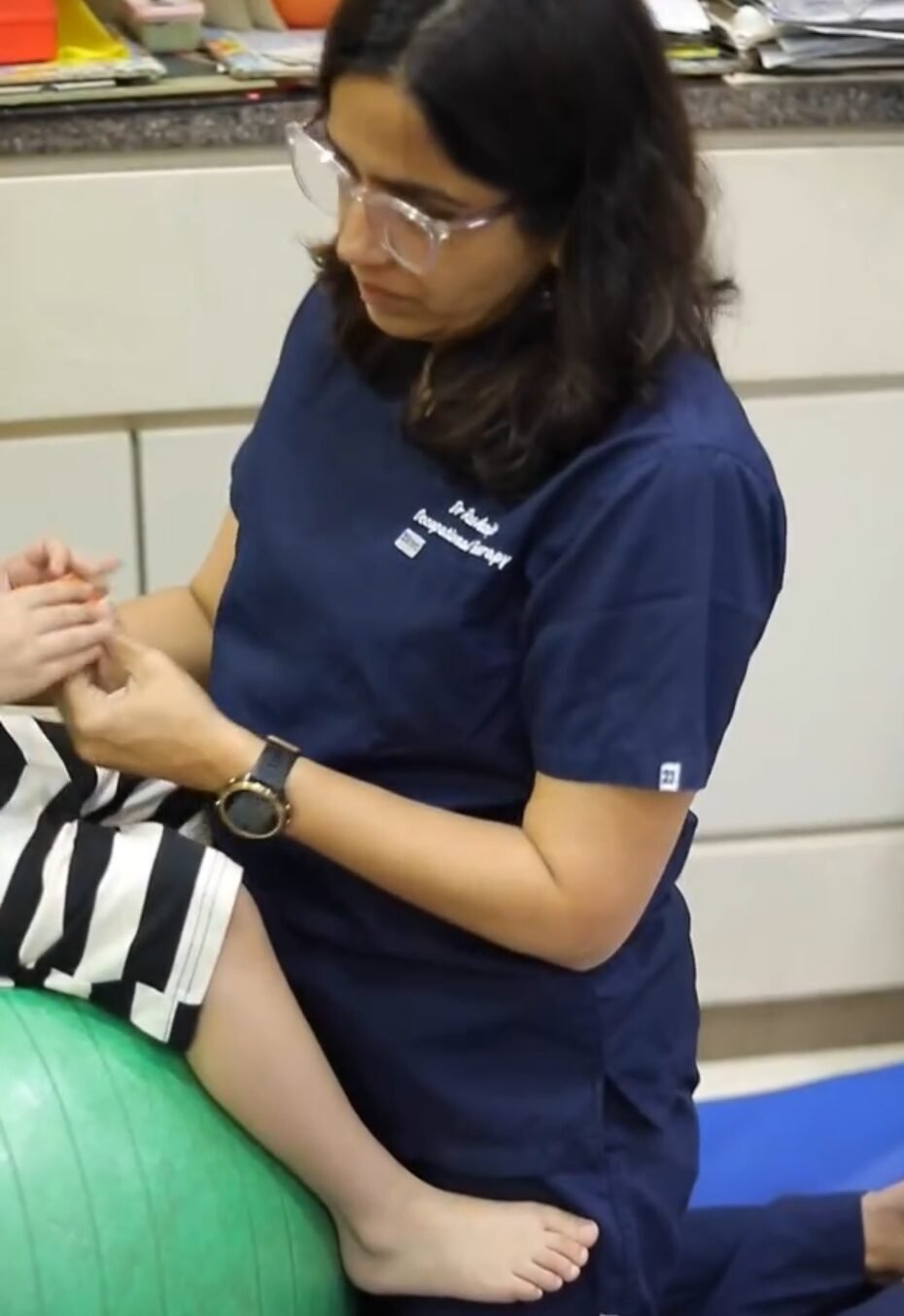
For Rukaiya, success isn’t measured in accolades, it’s in the smiles of her young clients, in their first breakthroughs, and in the heartfelt gratitude of parents who finally see their children thriving. “When a parent thanks you for their child’s success,” she says, “there’s no better feeling, that’s what gives me peaceful sleep.”
Rukaiya Harianawala’s journey as an Occupational Therapist is a testament to quiet strength, deep compassion, and a lifelong dedication to creating a more inclusive, empowered world for children with special needs. Here, in an exclusive interview with Sumita Chakraborty, Editor-in-Chief, TheGlitz, Rukaiya Harianawala opens up about her incredible three-decade journey, the joys and challenges of her work, and the moments that continue to inspire her every single day.
Over To Rukaiya Harianawala
With over three decades of experience in occupational therapy, what continues to drive your passion for working with children with special needs?
Rukaiya: What began as a career, a profession driven by ambition and the desire to do my best, gradually transformed into a true passion. Over time, I found myself deeply enjoying the work, and the clinic became more than just a workplace; it became my happy place. I felt a profound inner calling to help every child I worked with reach their fullest potential.
You’ve worked with renowned institutions like Saifee and Prince Aly Khan Hospitals and now serve at the Aditya Birla Integrated School. How has your approach evolved across these diverse settings?
Rukaiya: In the hospital, my focus was primarily on adult neurorehabilitation. I worked extensively with patients recovering from strokes and head injuries, helping them regain independence in their Activities of Daily Living (ADLs) and guiding them through the process of returning to their daily occupations.
Working in a school environment, however, has been a completely different experience… one that is incredibly rewarding. Supporting children with special needs in a collaborative setting, where each team member contributes with diverse insights and strategies, creates a rich, multidimensional approach. This collective effort ensures that each child receives the support they need to achieve their individual goals.
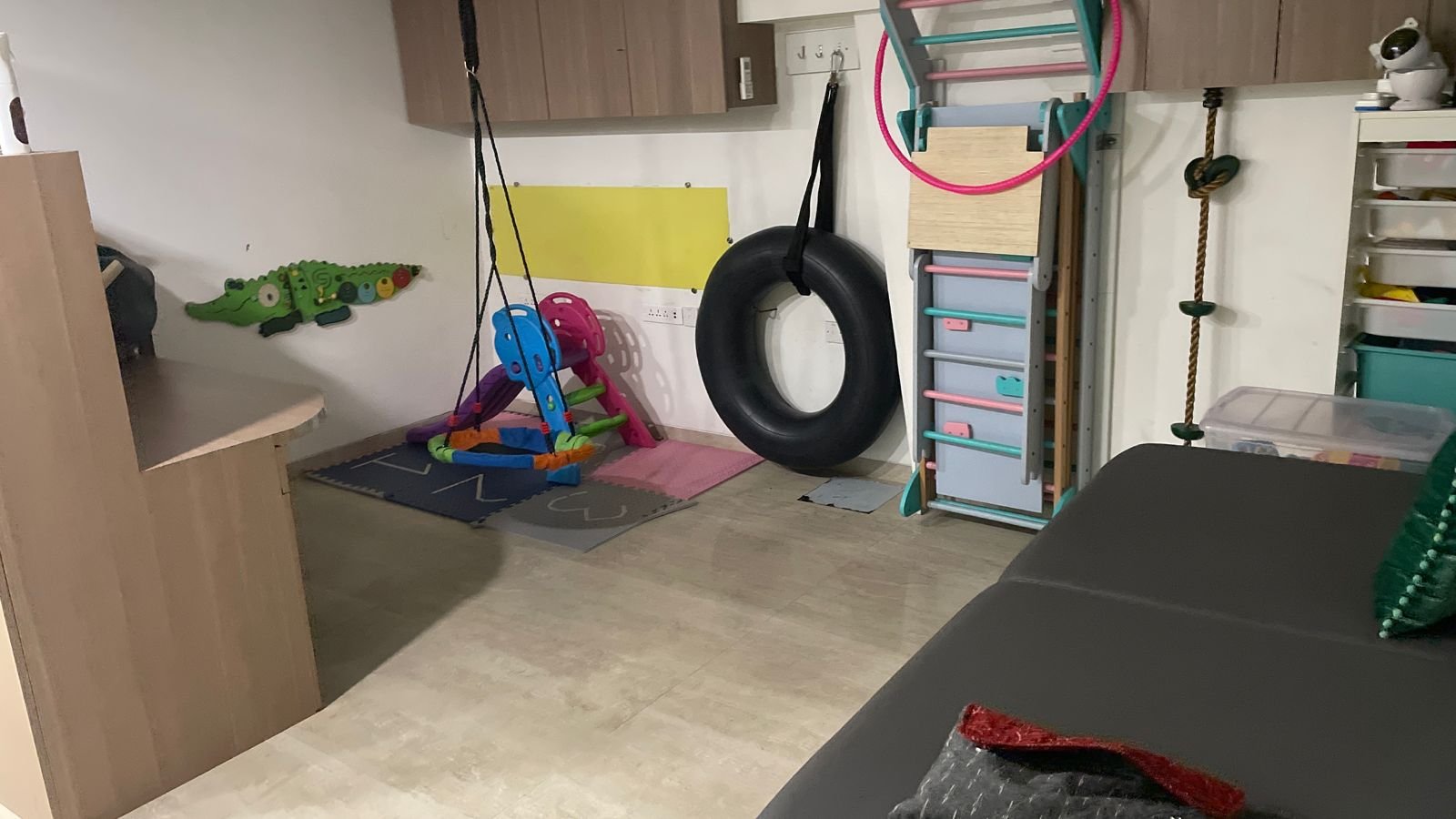
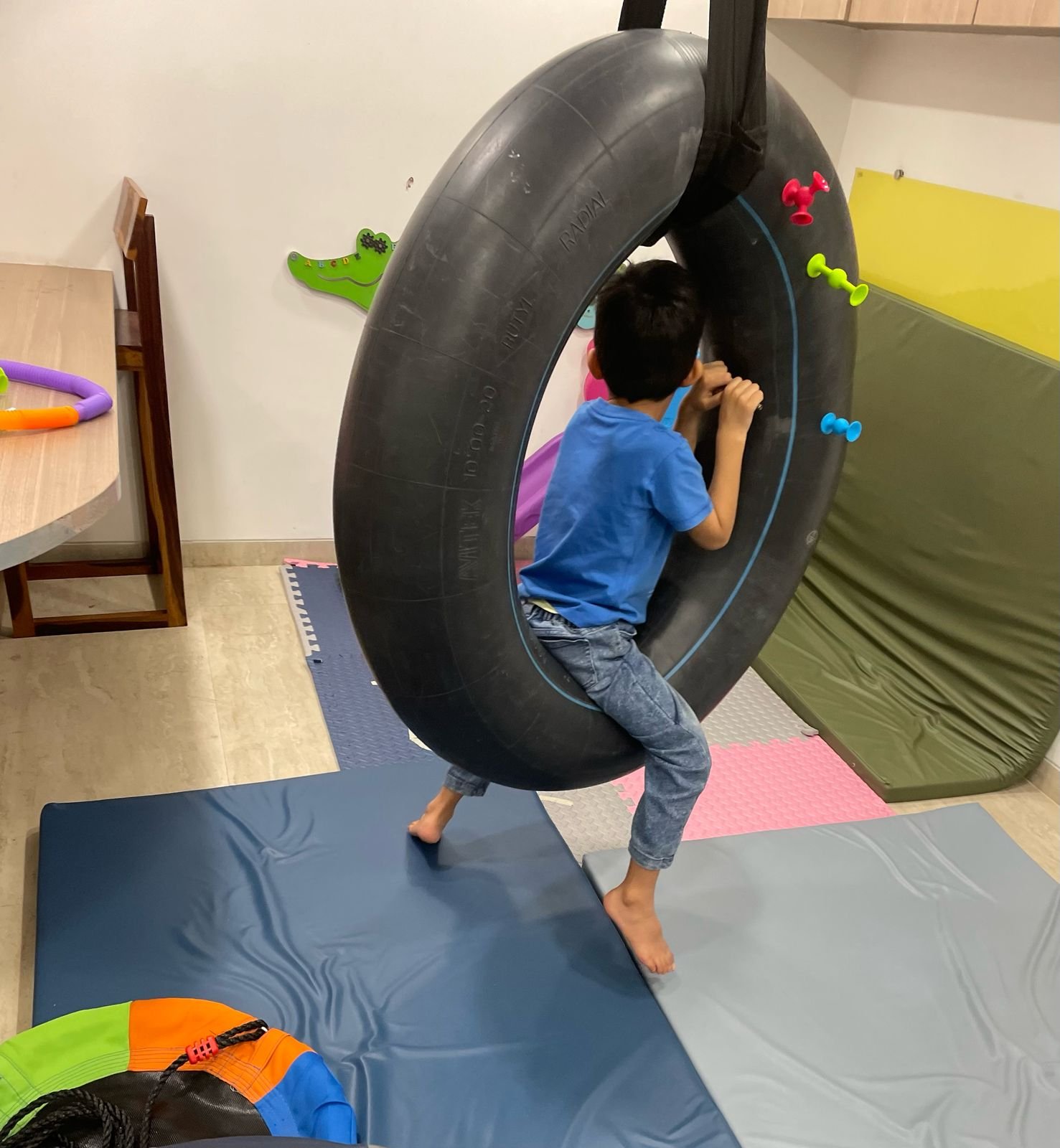
For many parents, an early diagnosis can feel overwhelming. How do you help them navigate the emotional and practical journey of supporting a child with Autism, ADHD, or sensory disorders?
Rukaiya: Yes, early diagnosis can be overwhelming for parents. Many struggle with acceptance… some ask, “Why my child?”, while others believe, “This never happened in our time.” In my practice, whenever a child is referred to me, I always begin by meeting the parents alone. I give them space to express their thoughts, fears, and perceptions of the situation.
Only once they’ve shared their emotions do I begin asking my questions, guiding the conversation in a way that helps them begin to process and understand things more clearly. It’s rarely just one consultation, many parents need ongoing support, sometimes even a phone call, simply to feel reassured that they’re making the right decisions for their child.
But over time, when they begin to witness the positive changes in their child through therapy, all the fear, doubt, and uncertainty slowly fade. That transformation brings relief and often, renewed hope.
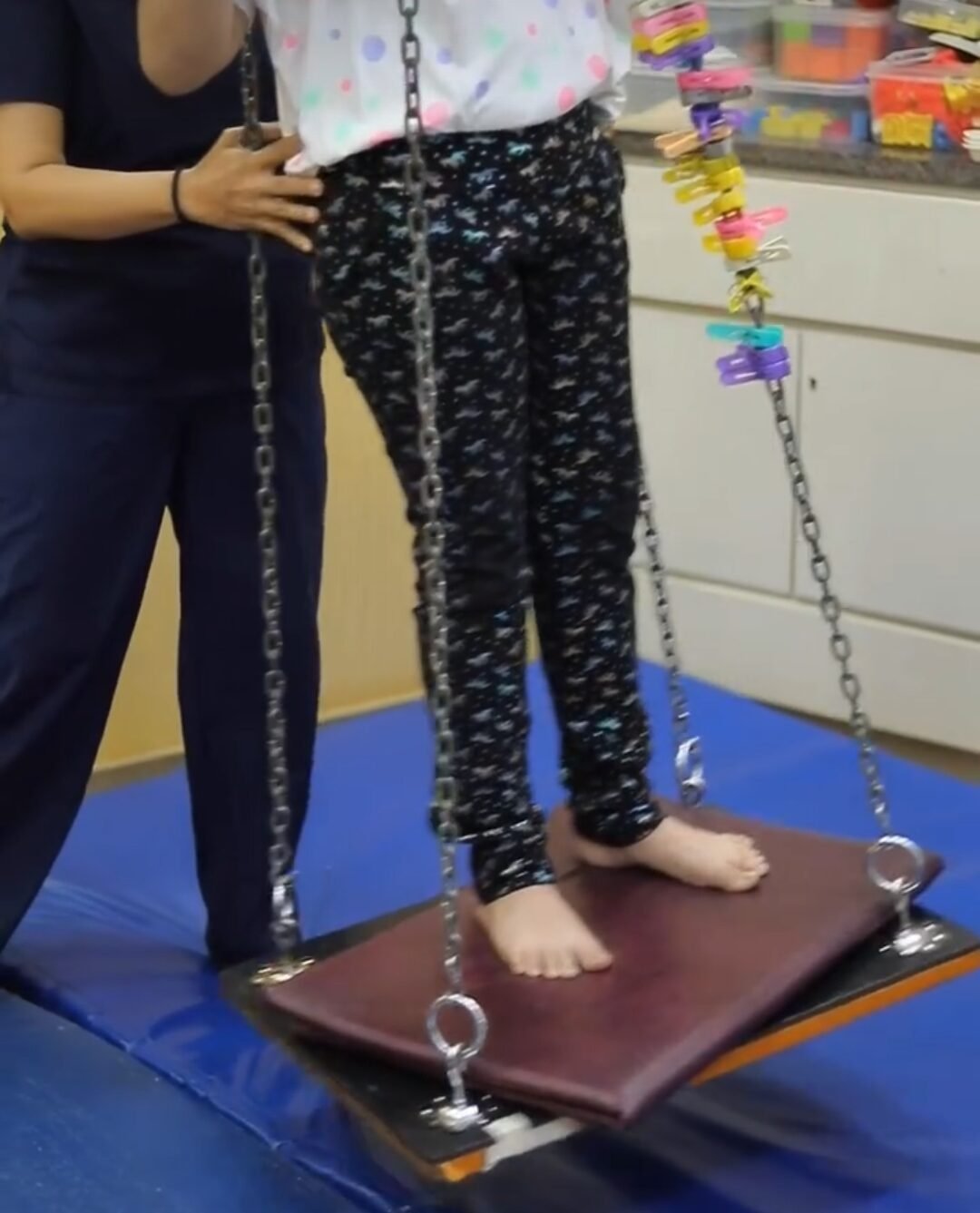
You mentioned that a simple ‘thank you’ from a parent gives you peaceful sleep. Could you share a memorable success story that’s stayed with you over the years?
Rukaiya: One of the kids who came to me for therapy was a twin. While his sibling showed no developmental concerns, this boy faced constant comparisons: “Why can your brother do it and not you?” or “He’s so good at football, why aren’t you?” But the truth was, this child genuinely struggled and it wasn’t due to a lack of effort or will.
What stood out most in this journey was his mother. She was incredibly patient and unwavering in her support. She never missed a single session and followed every aspect of the home program with complete dedication. Her commitment was remarkable.
As he reached Grade 9, the school advised him to drop science to ease the academic load and improve his scores. But this young boy had already made up his mind, he’d rather score average across subjects than limit his options.
He went on to clear his Grade 10 successfully, and today, he’s studying Computer Science in the United States, living independently. I feel so proud of the person he’s become. And when he comes to visit, the simple words “Thank you” mean more than I can express, they echo with years of effort, resilience, and quiet triumph.
What are some of the most common misconceptions people have about children with conditions like ADHD or Down syndrome and how do you work to challenge those perceptions?
Rukaiya: Misconceptions and sometimes even unrealistic expectations, often need to be clarified. We conduct regular counselling sessions with parents to clearly explain the goals we’ve set for their child and what can realistically be achieved. At times, an overload of unnecessary or unverified information can increase their anxiety. But through open, honest, and supportive conversations, we’re able to ease their concerns and guide them with clarity and confidence.
Balancing roles across multiple clinics and a school must be demanding. What does a typical day look like for you, and how do you maintain emotional resilience in such a deeply involved field? Also, what are the three challenges you’ve faced at your job?
Rukaiya: As I said earlier, what began as a profession became a true passion. Yes, the days can be hard because while the milestones achieved are often overlooked, the focus tends to fall more on what hasn’t been accomplished. We find ourselves answering parents, teachers, counselors… everyone wants to know “Why did he behave this way today?”, “Why didn’t she finish her task?”, “Why did he push someone?”, or “Why is she still so slow?”
At times, it feels like we’re surrounded by questions, concerns, and impatience. It can be emotionally draining, especially when people expect instant results in a process that demands time, effort, and understanding.
Many parents come in expecting a magic wand… that with one session, their child will be “fixed.” What they often don’t realize is that we’re working at a deep level, through the nervous system, helping their child regulate, grow, and evolve, not just functionally, but holistically.
To stay balanced and centered amidst all this, I make time for myself. I run regularly, and I love playing throwball. Physical activity is my way of pressing the refresh button, it helps me recharge and show up fully for the children and families I work with.
In your opinion, how has occupational therapy in India changed over the past 30 years especially in terms of awareness, resources, and parent involvement?
Rukaiya: Occupational Therapy as a profession has grown tremendously over the years. The level of awareness and understanding today is worlds apart from what it was three decades ago. It’s heartening to see how far we’ve come.
The way occupational therapists have spread their impact across the globe is truly phenomenal… touching lives, transforming abilities, and advocating for inclusion at every step.
I feel incredibly proud to be one of them.
